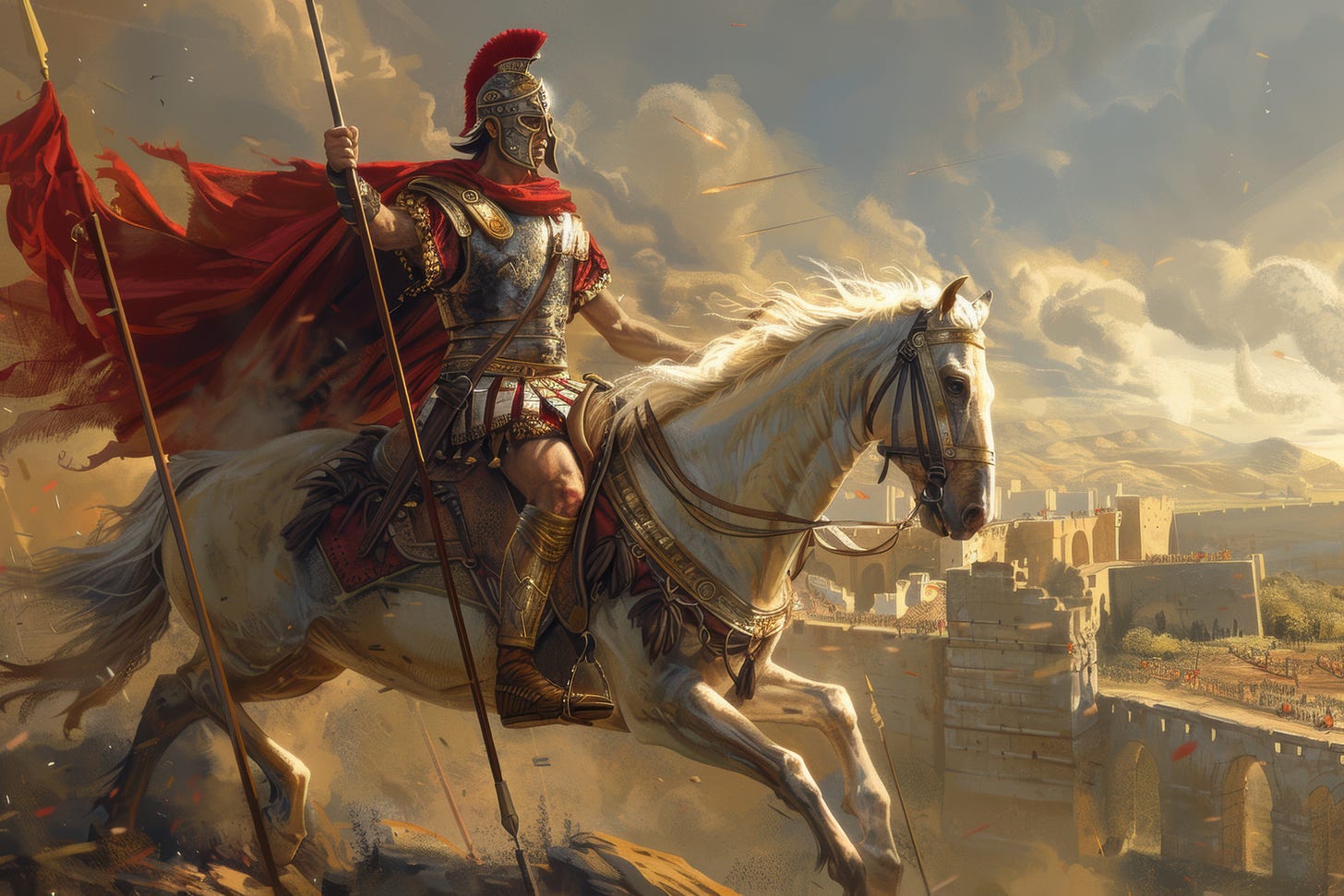
Three months into his second term, Trump has started two wars: a war on noncitizens and a trade war. To administer the former, he’s invoked an obscure 18th-century act. To wage the latter, he’s wielded his weapon of choice: tariffs.
The administration claims tariffs will motivate consumers to buy American, that the revenue generated will amount to a historic bonanza, and that they will force our adversaries—among them, now, Canada, apparently—to their knees.
The claims are dubious, to put it charitably, but I’m not interested in wading into the economic debate swirling around tariffs, not only because there are people far more qualified than I to expound on their multifarious repercussions, but because I don’t actually think it’s an economic strategy. It’s a philosophy.
Some accuse Trump’s approach to governing as isolationist and protectionist, which may be true, but those characterizations fail to contextualize the man’s motivations. He’s a dealmaker at heart. He paid someone to write a book about it, his version of The Art of War. Trump makes his dealmaking credo plain in The Art of the Deal.
“The worst thing you can possibly do in a deal is seem desperate to make it. That makes the other guy smell blood, and then you’re dead. The best thing you can do is deal from strength, and leverage is the biggest strength you can have. Leverage is having something the other guy wants. Or better yet, needs. Or best of all, simply can’t do without.”
To Trump’s thinking, the U.S., operating at a trade deficit for decades, is getting a raw deal. He thinks he can get better deals, which he’ll manage by applying pressure, something that tariffs are good at. He’s banking on the U.S. being able to weather economic pain longer than any other country, including China. With tariffs, he’ll gain more and more leverage, until our foes—everyone, it seems—come back to the table, weakened and cornered into a deal favorable to the U.S. Even if they do, however, we’ll have sacrificed something far more valuable: our allies.
There’s a blunter way of putting this, one that I’m sure Trump himself would agree with: In every deal, there’s a winner and a loser. Trump is trying to beat every other country, just as he’s trying to beat every other politician in the U.S. and every other businessperson in the world. He doesn’t much care that American consumers and business owners are bearing the brunt of the increased costs of incoming goods and materials, as many are now experiencing. Likely, he welcomes it.
“The worst of times often create the best opportunities to make good deals.”
Trump’s tariffs exemplify his long-held zero-sum outlook. It’s either us or them, me or them, winners and losers. His worldview glorifies those “winners,” instantiated by titans of industry, conquerors, emperors—men, great men who single-handedly shaped the world. His perspective aligns with a pillar of the American ethic, rugged individualism, the ideology that urges people pull to themselves up by their bootstraps. Too bad it’s a myth.
Trump insists he pulled himself up by his bootstraps, having received just a “small loan” from his father, which he claimed to be $1 million, though the actual figure was upwards of $400 million. “Great men” never did anything by themselves, though they desperately want you to believe that.
Every major advancement in human history was a product of cooperation. Every monument we built. Every technology we developed. Even accomplishments that appear to be individual, such as artistic achievements or scientific discoveries, were products of a milieu, a zeitgeist, a culture, a way of thinking, a support system, education, patrons.
Look to our beginnings for evidence. Early humans faced overwhelming challenges. Dramatic climate shifts. Ice ages. Terrifying predators. How did they survive? Did a great man save them? No, he wouldn’t have stood a chance against the short-faced bear. They were smart, and they worked together, fashioning tools and using their environment to their advantage. By themselves, they were grievously vulnerable. Together, they were fearsome.
There is a catch, though. We have a history of killing each other. Tribes competing for resources. Nations fighting for land or championing ideologies. Those tribes and nations had chiefs and kings—“great men.”
In other words, we contain opposing forces within us, a bequest from our checkered past: the cooperative and the tribal. Trump’s zero-sum philosophy isn’t unnatural, but it speaks to our demons—war mongers, genocidaires, and enslavers. The cooperative speaks to our angels—creators of society, agriculture, science, and art.
History has shown us time and time again that we reach greater heights when we when we work together, when we create things, when we uplift one another, and when nations establish trade agreements and respect each other’s boundaries. Unfortunately, great men are always getting in the way.



